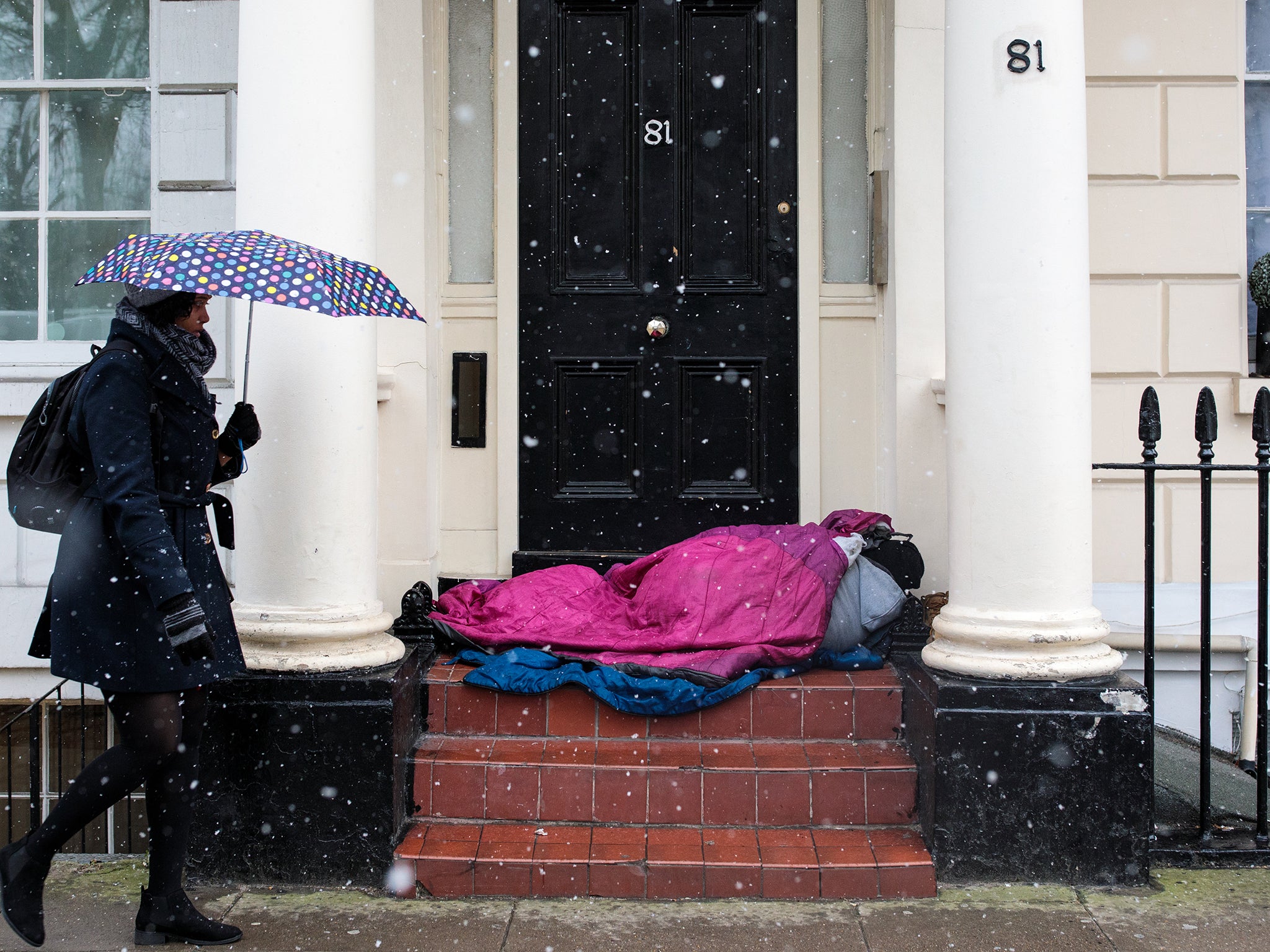Why we need to stop using the word ‘homeless’
All of us are complex and unique individuals – yet we reduce rough sleepers' identities to nothing with a single, heavily loaded word.

Imagine a world in which your identity rested solely on the type of home you lived in. A world in which people were defined as bedsitters, flat-sharers or one-up-one-downers, instead of a combination of complex intertwining factors like race, political beliefs, age, gender or sexuality. This is a ridiculous idea that ignores the intricate reality of human existence, disregarding the never-ending process of identification to portray people as a reflection of what they own.
Yet an increasing number of people in the UK are being described this way.
In the last decade, rough sleeping has increased drastically, surging by 169% between 2010 and 2018. At the same time the number of people enduring less visible types of homelessness like living in temporary accommodation or sofa-surfing is also on the rise.
The shadow of not having a settled home is hanging over more and more people, yet we continue to lump them together as one homogenous group – “the homeless”.
A lot is written about how to solve homelessness in the UK. There are vital, ongoing debates focusing on the need to build more social housing, increase rent controls and reform our punitive welfare system. Yet these kind of policies can only become a reality through public support.
This raises a crucial question: why is homelessness allowed to exist in the first place? Why, in the sixth richest economy in the world, isn’t there public outrage that more and more people are forced to experience the indignity of sleeping rough or spending sweltering summers in a shipping container?
A major piece of this puzzle lies in the way we talk and write about the issue. In his book Social Identity, sociologist Richard Jenkins argues that some identities have a “master status”, a definitive power that overrides people’s other less salient affiliations and characteristics. Branding someone as homeless in this way cements their economic situation as their defining characteristic.
In reality, all individuals are complex and unique. I’ve met an Iranian man living in a hostel with a PhD in Chemistry, a single mother living in temporary accommodation who loves writing poetry and an 18 year old guy kicked out by his family who has dreams of becoming a journalist. Each is far more than their situation, but they’re still crudely lumped together, united by what they lack.
In her book Homelessness, Citizenship and Identity, American academic Kathleen Arnold explains that economic status has become an identity in its own right. People at the bottom of the food chain are “treated politically as irrational, dependent and irresponsible.” A 2017 report by the homeless charity Crisis backs this up. It found many people “see homeless people as victims or outsiders who become homeless through poor choices or bad luck.”
It’s much easier to turn a blind eye to the person attempting to live under a bridge if you think their bad decisions have put them there. At the same time the real culprits – a housing market set up in favour of those with capital and a rigged welfare system – continue to avoid prosecution.

For his 1933 classic Down and Out in Paris and London, George Orwell spent months living with so-called “tramps” on Britain’s streets. He came to a grim conclusion: “money has become the grand test of virtue. By this test beggars fail, and for this they are despised.” Unfortunately, more than 80 years since Orwell wrote those words, money remains the grand test of virtue in our society.
To see this in action, you only have to look at the way right-wing segments of the media portray people on benefits while giving a relative free pass to our prime minister – all despite his difficult relationship with the truth and penchant for wasting huge sums of public money.
As a society, we struggle with ambiguity. It’s much easier when people fall into clear, easy to understand categories. Describing people as homeless easily sums up the broad issue or a particular project or programme, but it also dehumanises them, degrading them to a mere economic category. The reality is, until we face up to the complexity of human identities and start to see the people behind the situation, huge numbers will continue to live without the security of a stable home.
Join our commenting forum
Join thought-provoking conversations, follow other Independent readers and see their replies
Comments
Bookmark popover
Removed from bookmarks